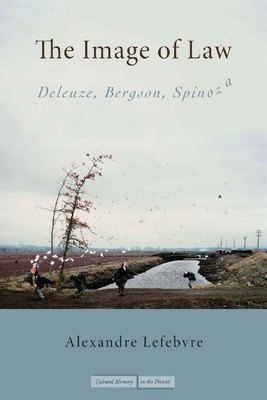
- We will send in 10–14 business days.
- Author: Alexandre Lefebvre
- Publisher: Stanford University Press
- ISBN-10: 0804759855
- ISBN-13: 9780804759854
- Format: 15 x 22.6 x 2 cm, softcover
- Language: English
- SAVE -10% with code: EXTRA
Reviews
Description
The Image of Law is the first book to examine law through the thought of twentieth-century French philosopher Gilles Deleuze. Lefebvre challenges the truism that judges must apply and not create law. In a plain and lucid style, he activates Deleuze's key themes--his critique of dogmatic thought, theory of time, and concept of the encounter--within the context of adjudication in order to claim that judgment has an inherent, and not an accidental or willful, creativity. The book begins with a critique of the neo-Kantian tradition in legal theory (Hart, Dworkin, and Habermas) and proceeds to draw on Bergson's theory of perception and memory and Spinoza's conception of ethics in order to frame creativity as a necessary feature of judgment.
EXTRA 10 % discount with code: EXTRA
The promotion ends in 19d.05:18:59
The discount code is valid when purchasing from 10 €. Discounts do not stack.
- Author: Alexandre Lefebvre
- Publisher: Stanford University Press
- ISBN-10: 0804759855
- ISBN-13: 9780804759854
- Format: 15 x 22.6 x 2 cm, softcover
- Language: English English
The Image of Law is the first book to examine law through the thought of twentieth-century French philosopher Gilles Deleuze. Lefebvre challenges the truism that judges must apply and not create law. In a plain and lucid style, he activates Deleuze's key themes--his critique of dogmatic thought, theory of time, and concept of the encounter--within the context of adjudication in order to claim that judgment has an inherent, and not an accidental or willful, creativity. The book begins with a critique of the neo-Kantian tradition in legal theory (Hart, Dworkin, and Habermas) and proceeds to draw on Bergson's theory of perception and memory and Spinoza's conception of ethics in order to frame creativity as a necessary feature of judgment.


Reviews